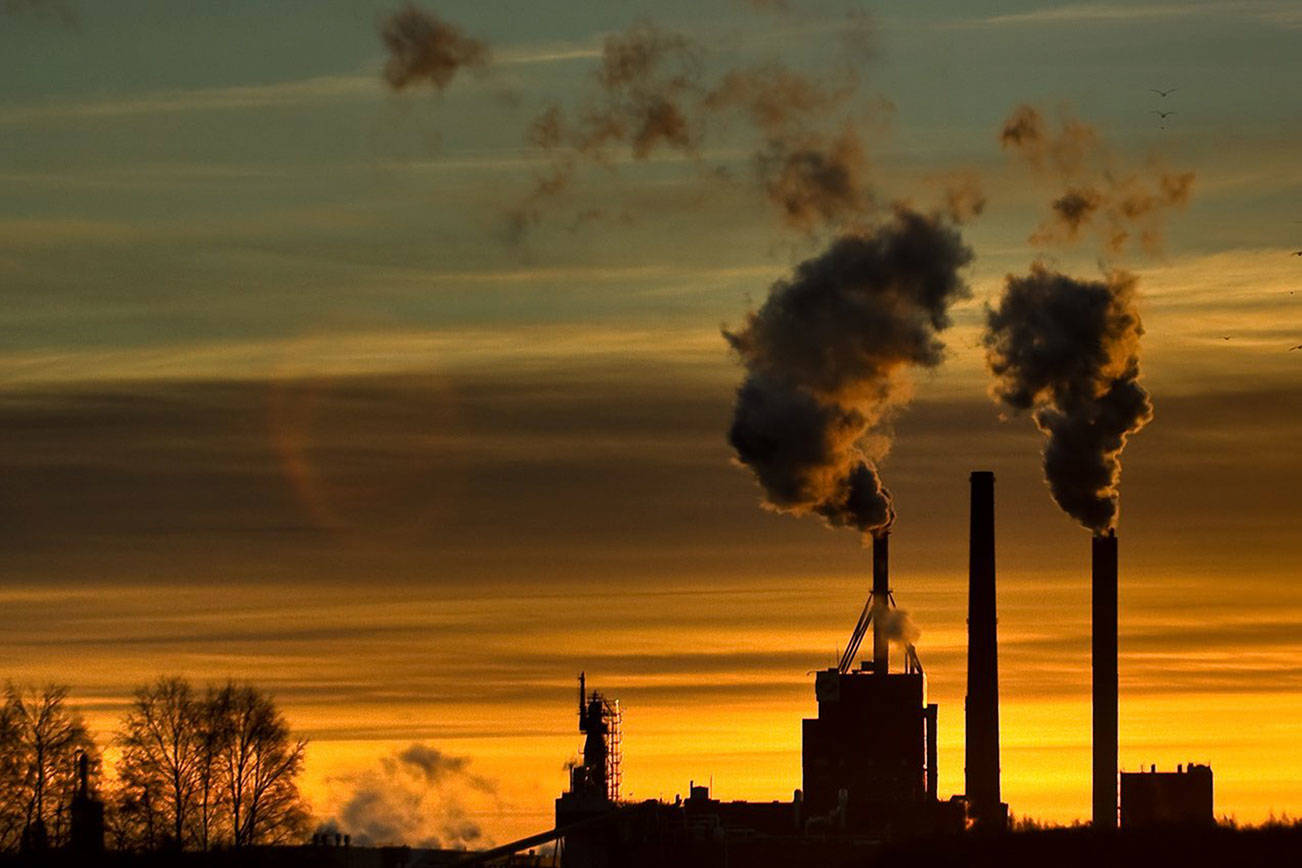Here’s a switch. Rather than closing another pulp and paper mill, a new one is under construction right here in Washington.
Columbia Pulp’s plant on the Snake River will use a new technology that pulls cellulose out of the abundant straw left over from wheat and alfalfa harvests. The $184 million plant near Dayton is scheduled to open later this year. Traditionally, pulp comes from wood either grown specifically for paper making or as byproducts from sawmills.
When fully operational, it will add 100 full-time jobs in Columbia County, which the Washington State Employment Security Department reports has roughly 4,000 citizens and 1,800 jobs. Those family wage jobs are important to rural Washington where the unemployment rate is double, and at times triple, that of Seattle.
Columbia will take 250,000 tons of straw to pulp for paper products such as tissue, paper towels and disposable cups, cartons and plates which are biodegradable and, unlike plastic alternatives, break down more rapidly in the environment.
Rather than burning the straw in wheat fields, the new facility will generate between $10 and $15 per ton in new revenue for growers. In total, the economic benefit is estimated at $70 million a year.
With its new mill, Columbia Pulp is embarking on a scaled-up, multimillion-dollar field test of a technology that uses less energy and none of the chemicals of legacy pulp-and-paper mills, the Seattle Times reported last July.
Columbia’s technology was developed by Renton-based Sustainable Fiber Technologies from research that started at the University of Washington.
Making pulp from straw is not new. For the last half century, Shandong Tranlin Paper Co. in Shandong Province has been perfecting ways to take convert straw to pulp for manufacturing paper used in printing, tableware, food wrapping and tissue. Shandong Tranlin is also converting waste liquids into fertilizers.
In the U.S., Kimberly Clark started blending 20 percent straw from Midwestern wheat fields into its “GreenHarvest” tissue and toweling lines. It is part of a strategy to augment pulp from recycled paper. The company expects recycled paper supplies to continue to decline because of wireless transactions and increasing on-line reading materials.
Additionally, there is increased competition for pulp as on-line retail shipments grow. RISI Technology Channels reports that corrugated and paperboard box demand in the U.S. is forecasted to increase 2.6 percent this year to $39.4 billion primarily due to rebound in manufacturing output and continued expansion of the overall economy.
That rebound has a Taiwanese company, “npulp,” which uses wheat straw to make corrugated paper and packaging materials to look at Kansas as a source of pulping raw materials.
Columbia Pulp is a welcome addition to Dayton. In 2004, its only major employer, Seneca Foods closed its massive asparagus canning plant which was billed as the world’s largest. That facility employed 50 full-time and 2,000 seasonal workers and provided growers with $15 million in annual revenue. A combination of lower foreign labor costs and the removal of the tariff on imported canned asparagus from Peru doomed the plant.
The Columbia Pulp project is a win-win for the environment and the economy. It is welcomed in job-starved rural Washington.
In a Washington Business Magazine interview, Port of Columbia manager Jennie Dickinson said in my almost 20 years of economic development, I have never been to a permit hearing where there wasn’t at least one person speaking against the project. And we had zero.
With our oceans and landfills overflowing with plastic bottles, bags and food wrapping, pulping straw may be a game changer. If nothing else, it offers consumers more choices of products which don’t persist in the waste stream.
Don C. Brunell is a business analyst, writer and columnist. He recently retired as president of the Association of Washington Business, the state’s oldest and largest business organization, and now lives in Vancouver. He can be contacted at theBrunells@msn.com.
Talk to us
Please share your story tips by emailing editor@kentreporter.com.
To share your opinion for publication, submit a letter through our website https://www.kentreporter.com/submit-letter/. Include your name, address and daytime phone number. (We’ll only publish your name and hometown.) Please keep letters to 300 words or less.

